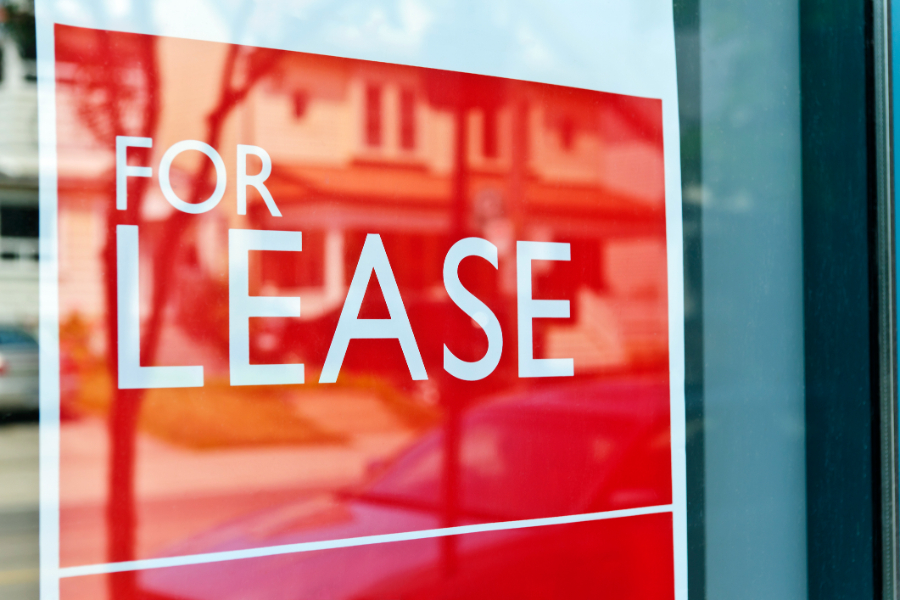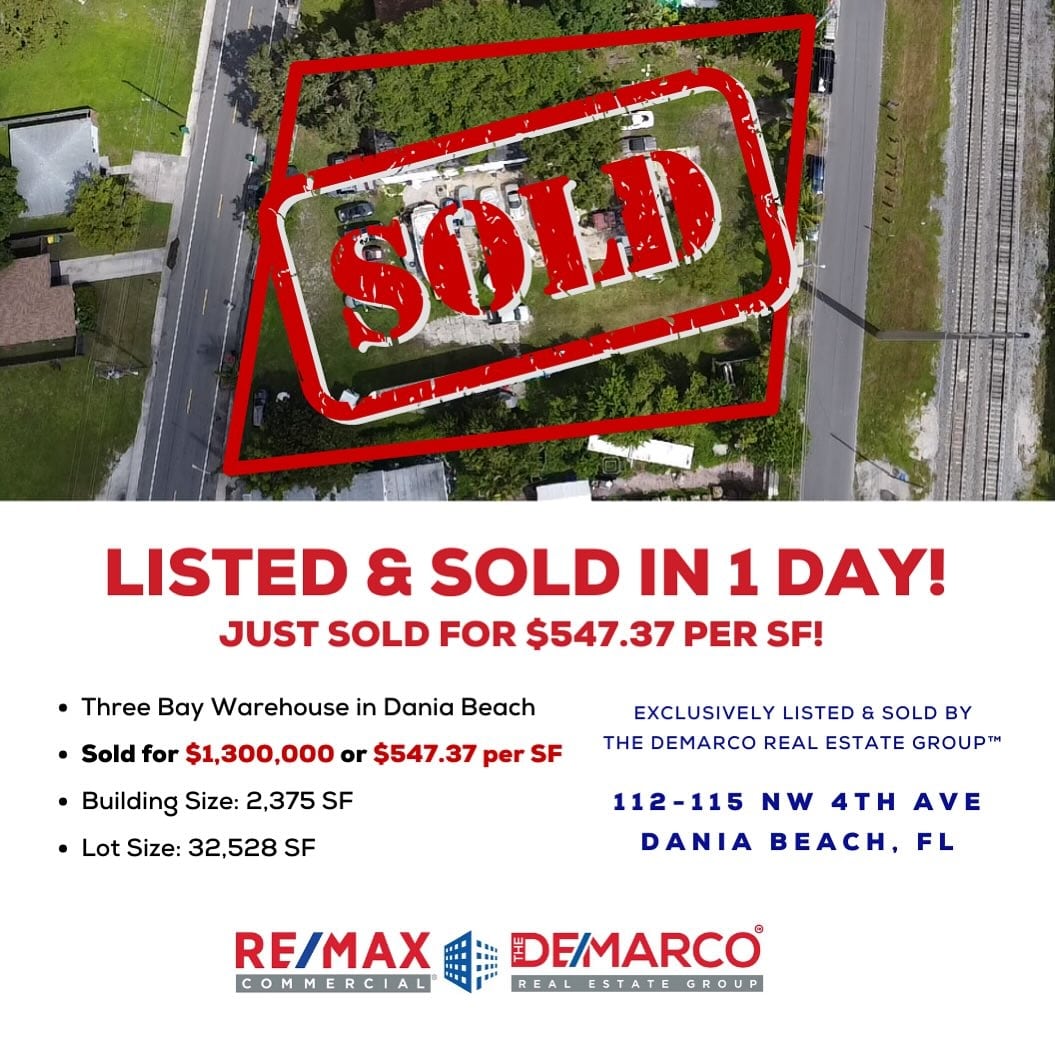
Whether you’re investing or leasing, South Florida is where potential meets opportunity
South Florida offers exciting opportunities for commercial real estate investors, with diverse properties like retail and office spaces that deliver strong, steady returns. The area’s unparalleled connectivity to global markets, coupled with tax perks and a resilient economy, makes it an attractive investment choice.
For business owners, South Florida is a launchpad for growth. Its vibrant communities and strong tourism create the perfect environment for success.
Whether investing or leasing, South Florida is where potential meets opportunity.
Table of Contents:
UNDERSTANDING THE SOUTH FLORIDA COMMERCIAL REAL ESTATE MARKET

Florida ranks #1 in economy and and excels in infrastructure and fiscal stability, which fuel its real estate growth
South Florida, typically encompassing the counties of Broward, Miami-Dade, and Monroe, offers a wide range of commercial properties that cater to various business needs and investor goals.
Overview of current market conditions
The region remains one of the nation’s top commercial real estate markets, consistently drawing significant investment and development. Florida ranks #1 in economy and education, and excels in infrastructure and fiscal stability, which are only some of the factors that fuel its real estate growth.
- Business-friendly climate
South Florida’s pro-business atmosphere is driving companies to relocate here, boosting demand for work spaces as the region emerges as a hub for technology, finance, and other industries. - Strong tourism
The area’s booming commercial real estate market is fueled by its thriving hospitality sector. In 2023, Florida saw 140.6 million visitors, a 2.3% increase from the previous year, with overseas visitation up 18.3%.
- Global investments
With access by land, sea, and air, South Florida is a global business hub. It attracts investment from countries like Canada, Singapore, China, and many others into its commercial real estate market. - Adaptable market
The market remains dynamic, with retail spaces focusing on experiential designs, business environments adapting for hybrid work, and industrial leasing growing 12% in 2023 due to e-commerce and manufacturing demand.
- Sustainability
Sustainability is reshaping Florida’s commercial real estate, with 68% of projects in 2023 featuring energy-efficient designs. Green-certified buildings see higher occupancy rates and lease premiums.
Browse commercial properties in South Florida now
Key factors that influence lease terms
Though South Florida is highly competitive, several elements influence the structure and terms of leases, shaping how property owners and entrepreneurs conduct commercial lease negotiations in the region.
- Location and submarket activity
High-demand areas like Coral Gables and West Miami have low vacancy rates and rising rents, reflecting strong competition. Lease terms often include clauses favoring long-term agreements, especially in these premium, highly sought-after locations.
- Tenant needs
Businesses are prioritizing flexible office spaces with wellness features, while retailers focus on high foot traffic and creating interactive, engaging shopping experiences. As a result, lease terms are often customized to meet these specific needs.
- Market conditions
In periods of high demand or limited supply, business tenants may encounter less room for commercial lease negotiations. However, in a more competitive market, they often secure better conditions, including rent reductions, shorter durations, and additional incentives.
- Property age and condition
Older buildings may offer lower base rents, but leases often come with higher maintenance costs and potential for repairs. In contrast, newer, well-maintained properties typically command higher rents, offering tenants fewer operational concerns and more modern amenities.
Browse commercial properties in South Florida now
Popular commercial hubs in South Florida
If you’re investing in the South Florida region, focusing on these key commercial areas can boost your chances for growth and success.
- Coral Gables
Renowned for its vibrant retail sector, this area located just southwest of downtown Miami offers rising rents and low vacancy rates. Its strong demand and prime location make it a worthwhile investment option. Inquire about commercial opportunities in Coral Gables
- Coconut Grove
South of downtown Miami is where you’ll find this commercial hub filled with a mix of upscale boutiques, galleries, and trendy shops. Its walkable streets, along with the renovated CocoWalk, make it a popular shopping and dining destination. Inquire about commercial opportunities in Coconut Grove
- South Dade
This area in southern Miami-Dade County, offers a blend of suburban and urban environments with growing opportunities for retail, logistics, and mixed use developments. Inquire about commercial opportunities in South Dade
- Port St. Lucie
This city is seeing significant growth in industrial, retail, and residential sectors. Industrial development is boosting the area’s commercial appeal, while rising apartment occupancy and retail absorption reflect increasing demand. Inquire about commercial opportunities in Port St. Lucie
- Miami
Miami is a consistent top destination for starting a business in South Florida. It’s known for its beaches, attractions, and diverse culture. Key industries include commerce, tourism, banking, and real estate, with ample support from local organizations. Inquire about commercial opportunities in Miami
Browse commercial properties in South Florida now
ESSENTIAL LEASE TERMS TO NEGOTIATE

Lease terms and and renewal options impact the long-term stability and ability to expand or relocate your business
Florida’s lack of state income taxes attracts residents and businesses, boosting investment and disposable income – a crucial factor in commercial lease negotiations. When leasing in South Florida, here are some vital factors to consider:
Rent structure
This outlines payment terms and directly influences the overall cost of leasing a commercial space.
- Base rent
This is the primary charge for leasing commercial space, usually calculated per square foot. It doesn’t include additional costs like taxes or maintenance. To negotiate base rent, you should research comparable rents, consider the property’s location, and evaluate market trends. Explore flexible options, such as rent abatements or gradual increases, based on lease conditions.
- Percentage rent
In some leases, a portion of the rent is based on a tenant’s sales, known as percentage rent. This is calculated as a percentage of gross sales exceeding a specified threshold. When negotiating, take a look at your expected sales, get a clear idea of the threshold, and compare the terms with similar leases.
- Escalations
Sometimes, your rent goes up over time. These increases or escalations are usually based on inflation, market trends, or fixed percentages. To negotiate, make sure you know how often and by how much the rent will increase. Checking out market conditions and comparable leases can help you push for more manageable and predictable adjustments.
Browse commercial properties in South Florida now
Length of lease and renewal options
Discussing these terms is crucial because they impact your long-term stability, flexibility to expand or relocate, and future rent terms.
- Lease length
The length of your lease is all about how long you’re committing to the space. Shorter leases give you flexibility if your needs change, while longer ones can offer stability and possibly better rates. Always think about your future plans. Will your business grow or require more space? Make sure the lease length aligns with your long-term goals. Comparing similar rental terms can also help you gauge what’s fair and negotiate terms that suit your business needs.
- Renewal options
Are you thinking about how long you’ll need the space? Renewal options give you the flexibility to extend your lease if your business is doing well and you want to stay longer. Study thoroughly the renewal terms, especially how rent will increase over time. Also, understand the notice period for renewal. Having strong lease extension options ensures you can stay without the hassle of renegotiating or relocating, giving you peace of mind for your business’ future and growth potential.
Browse commercial properties in South Florida now
Lease responsibilities
It’s important to figure out who handles repairs, property taxes, and insurance, as these costs can easily stack up over time.
- Maintenance
Keeping the property in good shape is essential, and that’s where maintenance comes in. It’s important to clarify who handles repairs and upkeep – are you responsible for small fixes, or is the property owner handling it? Also, be clear on how quickly repairs will be made and if any costs will fall on you.
- Taxes
In addition to property taxes, you may also be responsible for other taxes, such as sales tax, VAT, or business taxes, depending on your lease. Some leases include a “pass through” clause, where you pay a portion of the landlord’s taxes or tax increases over time. Clarify all tax obligations upfront to avoid surprises.
- Insurance responsibilities
When it comes to insurance in commercial leases, tenants usually cover liability insurance to protect against accidents or damage on the premises, while the lessor typically handles insurance for the building itself. Outline which policies are required, like property, casualty, or liability, and confirm who pays for each.
Browse commercial properties in South Florida now
NEGOTIATING FLEXIBILITY FOR BUSINESS GROWTH

Adapt and thrive with flexible lease options
Negotiating flexible lease terms can support your business’s expansion in this thriving market.
Subleasing and assignment clauses
These clauses give you the opportunity to transfer your lease rights and responsibilities, as long as you follow the terms outlined in your agreement.
- Subleasing
If you plan to sublease part of your business space, it’s vital to review any clauses that allow it. Understand the approval process, your continued responsibilities, and how rent or other lease terms apply. Specifying details like duration, rent, and conditions for the subtenant ensures you’re not caught off guard later. Getting these terms in writing helps maintain smooth operations, ensuring your sublease arrangement aligns with your business needs without creating unnecessary legal or financial risks.
- Assignment
An assignment clause defines the terms under which you can transfer your lease to another party. Before proceeding, review the clause to understand whether assignment is allowed and what conditions apply, such as obtaining landlord approval. Pay attention to restrictions on potential assignees, financial requirements, and if you should remain responsible for the lease after the transfer. Understanding these elements ensures you’re fully aware of the impact on your business and lease obligations.
Expansion and termination options
Considering clauses for growth or early termination allows your business to adapt, including expanding into more space or ending the lease early if the space becomes unsuitable or too costly.
- Expansion
Expansion options allow you to increase your space as your business grows, such as leasing additional square footage in the same building or adding new locations. Negotiating these options upfront is crucial, as they ensure you can expand without relocating. Watch out for vague terms, excessive rent increases, or limited expansion space that could hinder future growth. This clause helps avoid disruptions, provides long-term stability, and makes it easier to secure better terms as your operations evolve.
- Termination
These clauses let you exit a lease before the agreed term, like changes in business direction or if the space no longer meets your needs. Ensure the terms are clear about when and how you can terminate, including any penalties, notice periods, or specific requirements. Be cautious of penalties that may be too high or notice windows that are too short. These could limit your ability to shift and adapt if your business situation changes unexpectedly.
Tenant improvement (TI) allowances
These funds are provided by the property owner to help customize a rental space that fulfills your operational requirements.
- Negotiation scope
During negotiation, request a TI allowance to modify the space according to what your business needs. This allowance can cover essential changes like flooring, partitions, or HVAC systems to make the space more functional. Landlords may offer a per-square-foot allowance or cover specific improvements, so it’s important to understand what’s included and if these work for you. The more detailed your request, the better you can tailor the space to fit your business.
- Flexibility in use
Make sure the TI allowance provides flexibility in how you apply the funds. You’ll want to avoid being restricted to using landlord-approved vendors or pre-determined upgrades. It’s essential to negotiate for the ability to use the funds on the upgrades you need, such as new lighting or specialized equipment. Additionally, discuss the possibility of reimbursing unused funds if the project costs come in under budget, ensuring the allowance works in your favor.
Browse commercial properties in South Florida now
COMMON MISTAKES TO AVOID WHEN NEGOTIATING A LEASE

Pay attention to lease details now to prevent problems later
When negotiating a lease, stay mindful of details to avoid missteps that cause issues down the line.
Overlooking hidden costs
It’s easy to focus on the base rent and miss extra expenses, like maintenance fees and property taxes, which can quickly add up. Many people overlook these details in the excitement of finalizing a deal, only to face unexpected costs later. Carefully review the lease agreement, ask for a detailed breakdown of all charges, and discuss anything unclear. Being proactive helps you stay informed and protects your budget.
Failing to clarify Common Area Maintenance (CAM) charges
CAM charges cover shared spaces like hallways, lobbies, elevators, restrooms, or parking lots. Remember that these fees are not included in the base rent. To avoid this mistake, ask for a detailed breakdown of CAM charges and how they are calculated. By doing so, you can understand exactly what you’re paying for, spot any unnecessary expenses, and ensure the charges align with your agreement.
Ignoring exclusivity and non-complete clauses
Disregarding these clauses can result in competitors operating nearby, which may dilute your market share. Exclusivity clauses protect your business by restricting landlords from leasing nearby spaces to direct competitors, ensuring you have a unique presence in the area. On the other hand, non-complete clauses imposed by property owners should be carefully reviewed to ensure they don’t unnecessarily limit your business operations. Always negotiate these terms to safeguard your interests.
Failing to prepare
Don’t underestimate how long it takes to find the right rental space. Start your search at least 12 months before your lease ends to give yourself enough time for research, financing, negotiating terms, and any needed improvements. Rushing through this process can lead to unfavorable terms or a less-than-ideal space. Be sure to allocate time for touring locations finalizing the lease, and completing any build-out to avoid stress and costly mistakes. Don’t delay – browse commercial properties in South Florida now
Leasing in an unfit location
When leasing commercial space, location is everything, but don’t get too attached to one building too early. If you focus on just one place, you lose leverage in negotiations. Landlords know you’re set on it and may not offer favorable terms. To avoid this, explore multiple options. Keeping an open mind gives you more flexibility and negotiating power, ensuring you pick the best spot for your business, not just the one you’re emotionally attached to. Explore the variety of commercial options in South Florida
Poorly assessing the space
Before assigning a commercial lease, schedule a tour of the space to check key elements like the heating, ventilation, lighting, restrooms, air conditioning system, and other facilities. This will help you identify necessary repairs or improvements. Ask the lessor about who covers the costs and when the work will be done. Also, find out if services like janitorial or security are included and need to be factored in as costs. Schedule a tour of the commercial properties in South Florida
Failing to engage experts
Navigating the market can be tricky, so working with one of the top commercial real estate companies in South Florida can make a big difference. These companies bring market expertise, access to off-market properties, and skilled negotiators who can secure favorable lease terms. Their knowledge of local trends and property options can save you time, money, and stress, letting you get the best deal possible. Contact South Florida’s top commercial real estate firm
Zeroing in on the price tag
Rent is typically one of the biggest expenses for any business, so it makes sense to keep the cost in mind when selecting a commercial space. However, choosing a property based purely on price can lead to missing other crucial factors. To make the best decision, consider the location, accessibility, available amenities, the flexibility of the space, infrastructure, and how close you are to competitors. Consult with South Florida’s top commercial real estate firm
Ignoring long-term needs
Many entrepreneurs focus solely on their current needs when planning their commercial space. Still, it’s essential to consider how your lease can accommodate future changes, whether that’s growth or financial downturns. If you expect expansion, a right of first refusal clause lets you secure additional space as it opens up. For uncertain times, arranging a sublease or early termination option can let you exit before your lease term ends.
Browse commercial properties in South Florida now
WORK WITH THE DEMARCO GROUP FOR YOUR COMMERCIAL REAL ESTATE NEEDS

With over $1 billion in commercial real estate transactions, The DeMarco Group helps you make the best business decisions in South Florida
Negotiating commercial leases in South Florida can be complex, but with experienced professionals like The DeMarco Group, you’ll be guided through every step to ensure the best decisions for your business. Led by John DeMarco, with over $1 billion in commercial real estate transactions, our expertise in the local market is unmatched.
Contact The DeMarco Group at 954.453.1000 or send an inquiry to explore South Florida’s commercial real estate market with confidence.
